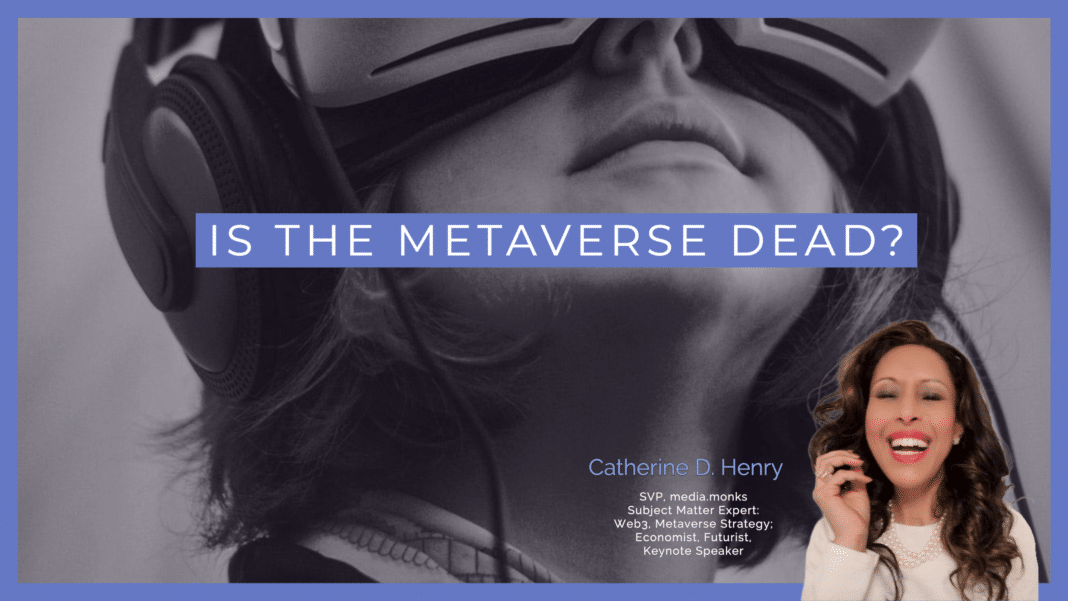It’s official: Apple announced it will not release an AR headset. The market is indeed flooded with multiple decent industrial headsets—even Kara Swisher didn’t see this coming!
The news will likely dampen enthusiasm for the metaverse. Should it?
The short answer is no. Here’s why.
1) Apple’s first Enterprise mixed-reality headset will be unveiled this year—at $3k per set, double the price of #meta’s and very strong competitor HTC Vive. Good luck!
2) The infrastructure for the metaverse continues to advance, with powerful investments made in battery power (to make it run better), graphics processing (for faster use) and slam technology (so that things can interact).
3) Change is coming to web payments systems (and we all hate cryptocurrency). Sure, you can hate crypto: but that doesn’t change the fact that Visa and Amex are digital currencies too. A standard will emerge—no matter how much you don’t like it.
4) The creator economy: children are earning thousands of dollars in royalties by creating mobile games that their parents play. Video games have become a serious business and continue to grow in popularity among young people.
On top of all this, Microsoft is currently undergoing a restructuring amid an announcement it would shed 10,000 of its employees, roughly 5% of its total workforce, and the entire MRKT team. “In the near term, we are focusing our VR efforts on workplace experiences,” says AltspaceVR.
They’re focusing on “immersive experiences powered by Microsoft Mesh,” the tech giant’s cloud-based AR/VR platform, which will compete directly with HTC Vive and Apple’s anticipated enterprise headsets.
What’s missing from consumer VR? IP. Social VR needs more interactive storytelling/story living to truly thrive, but Altspace was a good start.I had a recurring talk show in Altspace from 2020-2021 with #MichaelBarngrover and met friends, hung out, explored new #vr worlds like BCRVR: it was magical. Microsoft has long let the platform languish, so it’s no surprise to see them pull the cord now.
Most Use Mobile, PC not VR.
Only about 10% of VR consumers use headsets; most use VR platforms via mobile and PC, though the number is increasing with accesible hardware like the meta Quest2 headset. While it’s clear that the market for VR is growing, we believe this is largely due to mobile headsets.
PC-powered headsets have gained significant traction in the past year, but mobile remains by far the most popular platform for VR use.
Consumer VR has a lot of potential, but it’s still a work in progress.
The biggest tech firms are focusing on Enterprise for near-term growth, and they’re not yet ready to fully commit to Consumer VR.




